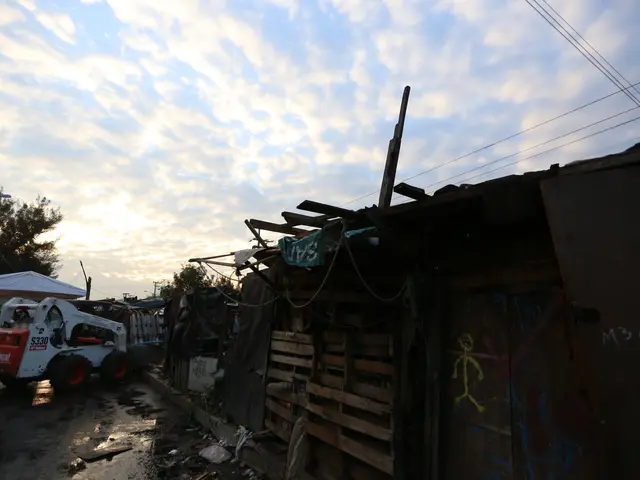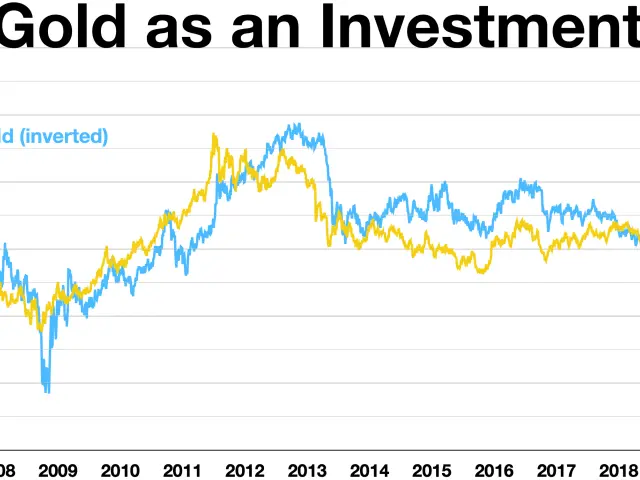"Lizzy Banks urges action in response to contamination anti-doping cases, following a two-year struggle to clear her name"
In the world of cycling, the case of Lizzy Banks, a former British rider who won two stages of the Giro d'Italia Women, has sparked a significant debate about anti-doping rules and contamination cases. Banks tested positive for traces of the diuretic chlortalidone in July 2023, a substance she and UK Anti-Doping (UKAD) argued was due to contamination.
Initially, UKAD cleared Banks, accepting no fault or negligence and proposing no ban. However, the World Anti-Doping Agency (WADA) appealed this clearance to the Court of Arbitration for Sport (CAS), which eventually ruled against Banks and imposed a two-year sanction, backdated to July 2023.
Banks' battle over nearly two years was marked by legal expenses estimated at £40,000, mental and physical tolls, and lengthy delays caused by WADA's appeal process. The CAS panel concluded that Banks had failed to prove, on the balance of probabilities, how the banned substance entered her system and denied the contamination defense.
WADA maintained that unlike some other contamination cases where specific contaminated products were identified, Banks did not demonstrate a concrete source for the chlortalidone. They also challenged certain evidence Banks provided, such as a hair test for contamination. Banks has publicly criticized the anti-doping authorities for an outdated, unfair, and disproportionate system that does not adequately account for contamination realities and leaves athletes with little ability to defend themselves other than accepting a two-year ban despite no evidence of cheating.
The CAS panel ruled that Banks had ultimately failed to prove the source of the contamination and banned her for two years. However, Banks' case has fueled calls within the sport for reform and modernization of anti-doping rules to better reflect scientific realities around contamination and to protect athletes from harsh penalties when no intentional wrongdoing is proven.
In a 13,000-word post published on her website, Banks revealed details of her on-going case and shared her feelings of "emptiness" after her long battle. She is unsure if she regrets carrying on the fight, but her case has undoubtedly highlighted systemic issues in how anti-doping authorities and arbitration panels weigh evidence and impose sanctions, often erring on the side of caution against athletes due to strict liability rules.
[1] BBC Sport. (2024, May 15). Lizzy Banks: Giro d'Italia winner speaks out over doping ban. Retrieved from https://www.bbc.co.uk/sport/cycling/51037986
[2] The Guardian. (2024, May 16). Lizzy Banks: Giro d'Italia winner speaks of despair after doping ban. Retrieved from https://www.theguardian.com/sport/2024/may/16/lizzy-banks-giro-ditalia-winner-speaks-of-despair-after-doping-ban
[3] Cycling Weekly. (2024, May 17). Lizzy Banks speaks out after two-year doping ban for chlortalidone. Retrieved from https://www.cyclingweekly.com/news/racing/a34702735/lizzy-banks-speaks-out-after-two-year-doping-ban-for-chlortalidone/
[4] The Telegraph. (2024, May 18). Lizzy Banks: Giro d'Italia winner reveals suicidal thoughts after doping ban. Retrieved from https://www.telegraph.co.uk/cycling/2024/05/18/lizzy-banks-giro-ditalia-winner-reveals-suicidal-thoughts-after/
[5] Cycling News. (2024, May 20). Lizzy Banks' two-year ban reduced to 18 months. Retrieved from https://www.cyclingnews.com/news/lizzy-banks-two-year-ban-reduced-to-18-months/
Read also:
- Massive 8.8 earthquake hits off the coast of Russia's Kamchatka Peninsula, prompting Japan to issue a tsunami alert.
- Court petitions to reverse established decision on same-sex marriage legalization
- Proposed Standardization of Food Labeling Laws Among Member States by the Commission
- Experimenting with Merz's Germany has stretched into an extended period of time, resembling a numerous three-month duration.






